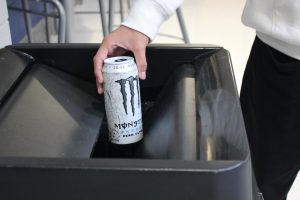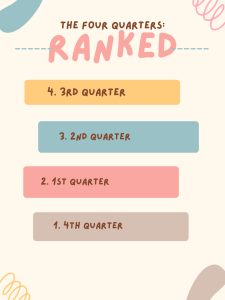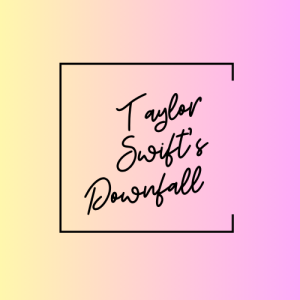2016 Releases Break The Norm
November 20, 2016
2016 has seen, and is likely still yet to see, the most unusually released music in history.
At first glance, the year has seemed fairly routine: Kanye West dropped a drawn out, production-heavy album that pushed the bounds of his genre over plenty of autotune, Beyonce released another showstopper that left us all in awe, and Frank Ocean kept us waiting (again).
But if you do not subscribe to Jay-Z’s HiFi streaming service, Tidal, you probably didn’t hear new Kanye or Beyonce until weeks after their release. And you did not hear Frank Ocean’s album on its original release date either. Nobody did, that date was back in 2015. Still weirder, the only people who have heard Childish Gambino’s new album, “Pharos,” were fans willing to purchase a $100 ticket to a 3-night camping event in the California desert of Joshua Tree National Park back in early September, where Childish exclusively performed his new album live.
So yeah, 2016 has been a little odd. But what does all this ridiculousness mean?
The initial effect for fans of these unorthodox release methods is that the actual music becomes less accessible. The year’s most anticipated albums, from Kanye West, Beyonce, and Frank Ocean, as well as those from stars like Drake, Chance the Rapper, and Travis Scott all came as exclusives to a streaming site, reducing the artists’ scopes to a fraction of their fanbase.
That said, with the spike in irregularity, creativity has also been on the rise with these albums.
Kanye’s “The Life of Pablo” kicked off the weirdness in February. West first released “TLOP” on Tidal in February, claiming that it would never be on Spotify or Apple Music, then proceeded to release the album on both streaming services a month later, and announced that he would release another album in July 2016, which he did not. Sonically, “TLOP” was just as unorthodox as its release, combining gospel choirs with electro-trap style production from a host of high profile producers, including Metro Boomin and Swizz Beatz. “TLOP” also includes enough high profile features to fill a page, highlighted by Future, Rihanna, Chance the Rapper, Andre 3000, and Frank Ocean.
With a reputation like Ye’s, the all star cast of features should not come as a surprise. However, the lack of a clear radio single to go along with this lineup does seem odd.
“TLOP” comes as a hardy slap in the face of mainstream pop-rap, including all of its essential aesthetics: the features, the anticipation, the high profile. But it includes almost none of its actual essence, where Kanye opts for a no-single, feature-filled album with noisy, structureless songs. While “TLOP” is far from a gospel album, which West claimed it to be on Twitter, it is much further from being a rap album.
Kanye has ventured far from the soulful rhymer/producer who dropped out of college; he is now a jaded old egomaniac who compares himself to Pablo Picasso and Steve Jobs. Rare glimpses of old Kanye in “TLOP” hit home, such as in “30 Hours,” which is filled with soulfulness and witty lyricism, “My ex said she gave me the best years of her life/I saw a recent picture of her, I guess she was right.”
These moments of nostalgia are rewarding but rare, and Kanye is bashfully unapologetic for his transformation, going a capella on “I Love Kanye” to mock his own fans, “I miss the old Kanye/Straight from the go Kanye … I hate the new Kanye/The bad mood Kanye.” That is what makes “TLOP” an extraordinary album; West dropped an album with high profile anticipation, and rejected all of its high profile expectations. And he was still able to drop one of the most talked about albums of the year. Why? Because he is Kanye West.
While “TLOP” is by no means Kanye’s best, he should be commended for making such boisterous, uncanny music while maintaining his overblown mainstream popstar status.
An equally unusual release came two months after “TLOP,” with Beyonce’s “Lemonade.” Beyonce took her newest album a step further than music, premiering the album as an hour long visual on HBO, then releasing the 12-track album exclusively on Tidal. Besides shocking the world by not so subtly hinting at Jay Z cheating (“Who the [expletive] you think you is boy?/ You ain’t married to no average [expletive] boy”), Beyonce spread her wings creatively to deliver her best album to date in an already illustrious career.
“Lemonade” experiments with everything from fiery punk rock in the Jack White-featuring “Don’t Hurt Yourself,” to her foot stomping Texas roots in “Daddy Lessons.” However, Beyonce shines brightest on “All Night,” letting her vocals glide over an OutKast-sampling rock groove, showing us a jazzier, more vulnerable Beyonce, but one that still has all the showstopping soul from “Halo” and “Love On Top.”
While “Lemonade” shows Beyonce at her worst moments, Bey maintains her signature braggadocio through her struggles, “How did it come down to this?/Going through your call list/I don’t wanna lose my pride/but I’mma [expletive] me up a [expletive].” As Beyonce navigates her way between her pride and her emotions, she weaves between sorrowful ballads like “Love Drought” and self-love anthems like “6-Inch” and “Freedom.” With this powerful tug of war of emotion, Beyonce reveals herself at her most vulnerable while simultaneously reminding us why she’s (still) the best in the business.
And then there is Frank Ocean. After years of waiting for a follow up to 2013’s masterful “Channel ORANGE,” and several false release dates, Ocean did not release his expected “Boys Don’t Cry” album, but a double album with the 17-track “Blonde” and the visual album “Endless,” both exclusively on Apple Music and iTunes. Fans hoping for an album remotely similar to “Channel ORANGE” will be disappointed, as “Blonde” takes an experimental leap just as “TLOP” and “Lemonade” did.
That said, Ocean delivers a melancholy masterpiece on “Blonde,” swapping his neo-soul roots for a more modern electronic sound with distorted vocals and heavily modified guitars and keys, giving a sound more closely related to that of his frequent collaborators, Bon Iver and James Blake. Though Ocean’s voice is by no means in need of modification, vocal distortion adds a fitting creative layer to songs like “Nikes,” the album’s opener, which critiques the materialistic tendencies of modern day teens. Ocean also lets his poetic lyricism shine through on the emotional “Ivy,” which serves as a sequel to “Bad Religion” from “Channel ORANGE,” and the immortality-pondering “Pink + White” which features stellar production from Pharrell and equally mesmerizing backup vocals from Beyonce.
You will not find a pop star as reluctant as Ocean, who kept an unsearchable low profile since the release of his debut album in 2013. “Blonde” reflects Ocean’s disregard to a music industry that revolves around hype and constant attention, both with its experimental sound and revealing lyrics, “Now stay away from highways/My eyes like them red lights/Right now I prefer yellow.” But Ocean’s low-profile attitude brings a unique perspective to his painstakingly high profile album. Combine that with the aforementioned musicality and Ocean’s album is likely to top several year-end charts.
Artists like Ocean have stretched the definition of an album, as well as how it can be released. Albums like “Blonde,” “TLOP,” and “Lemonade” dabble in the experimental both musically and visually. Artistically, they are unapologetically bold, and contain no clear radio singles for further promotion. Yet, they continue to be among the highest charting, most talked about albums of 2016.
While the release of music is becoming more restricted, mainstream artists in 2016 have released more and more experimental music with seemingly little pressure to produce less artistic radio hits. This may mean record labels have become less concerned with radio, giving artists more free range of production.
With that said, the confusing modern world of visual albums, streaming exclusives, and arbitrary release dates can be frustrating for fans who just want to listen to some music. However, with the sheer quality of music being released by mainstream artists at an all time high, it is hard to complain about how we get it.







